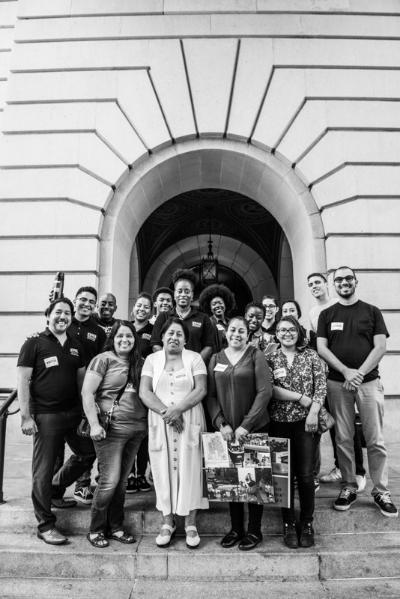
The California Department of Public Health/Education’s Tobacco-Related Disease Research Program (TRDRP) is a three-year study that integrates a rigorous mixed methods approach to analyze tobacco related health disparities and their determinants, with an effective community action research approach and grassroots organizing (Grills et al., 2014) to identify and implement community-driven tobacco control policies.
TRDRP examines the relationship between a “trifecta of nuisance properties” (i.e., marijuana dispensaries, alcohol outlets and smoke shops) in South Los Angeles’ under resourced Latinx and African American community and certain markers of quality of life. It is hypothesized that the trifecta potentiates both crime and violence decreasing public health and safety. Given that marijuana, tobacco, and alcohol outlet licensing and regulatory practices are undergoing serious review in LA City and County, this community based participatory research project explores how regulatory policies and market practices, along with a community-led policy campaigns led by our community partner, Community Coalition, can directly inform and support policy makers in developing regulations that protect public health.
This study specifically addresses the following three aims:
- Effects of cannabis and tobacco outlet density on urban crime, violence, health, and safety
- Effects of regulatory and business market forces on the spatial distribution of outlet density and proximity to youth activity settings
- The impact of a community-led organizing campaign to prevent cannabis and tobacco use through changes to the city/county cannabis and tobacco policies.
Insights obtained from the "trifecta" impact in South LA could be useful to communities with similar demographic profiles by:
- uncovering the relationships of businesses, regulations, and markets in producing observed spatial densities in South LA;
- increasing our understanding of the associated negative effects on crime, violence, health, and safety; and
- revealing how community-led policy campaigns can directly inform and support policy makers in developing community informed local policy regulations on tobacco, marijuana, and off-sale alcohol outlets.
Publications:
- Subica, A., Douglas, J., Kepple, N.J., Villaneuva, S, & Grills, C. T., (2017). The geography of crime and violence surrounding tobacco shops, medical marijuana dispensaries, and off-sale alcohol outlets in a large, urban low-income community of color. Preventive Medicine, 108, 8-16.
- Douglas, J. A., Subica, A.M., Franks, L., Johnson, G., Leon, C., Villanueva, S., Grills, C.T. (2020). Using participatory mapping to diagnose upstream determinants of health and prescribe downstream policy based interventions. Preventing Chronic Disease, 17(E138), 1-10.